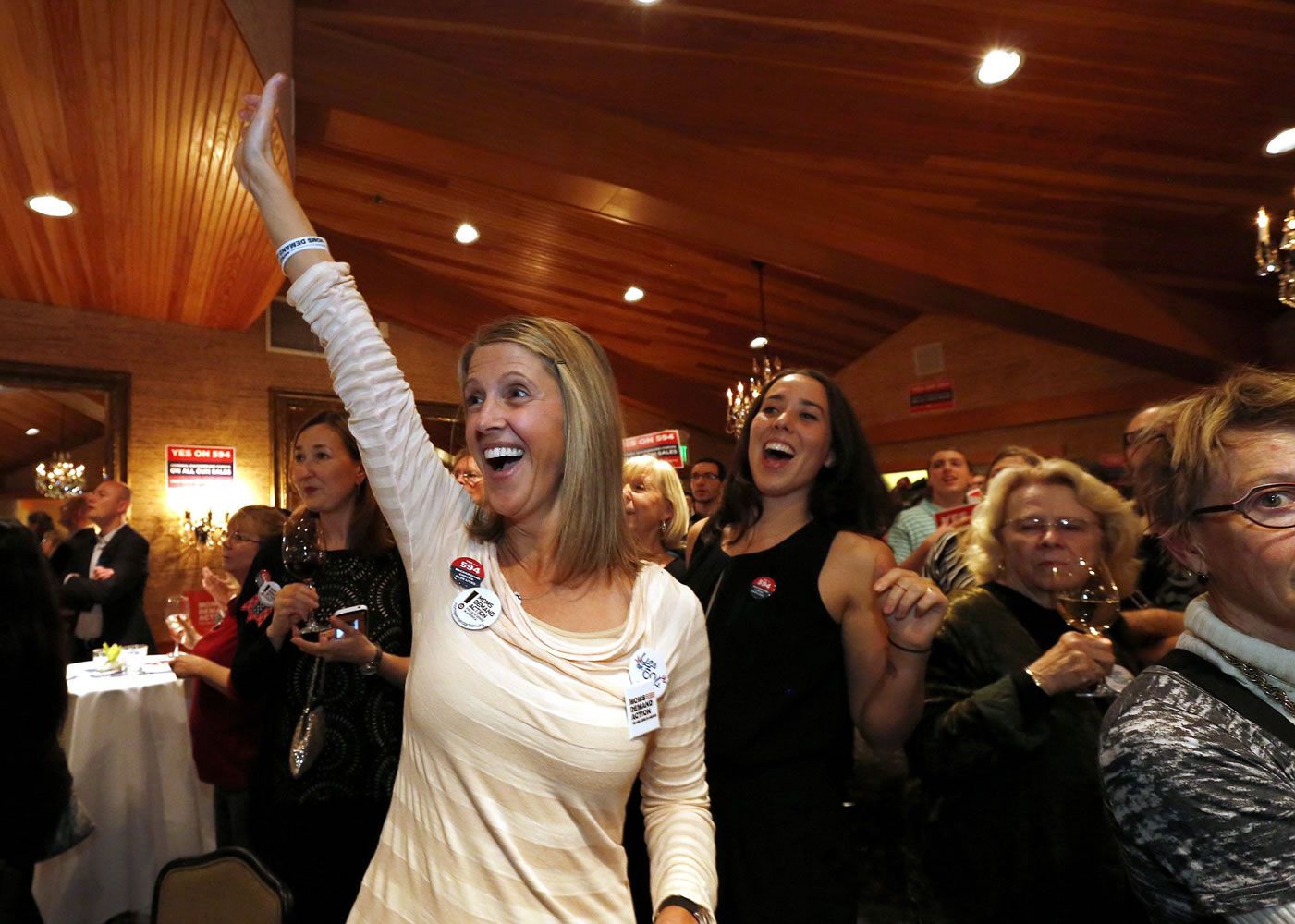SEATTLE — Washington state voters have approved expanding background checks on gun sales and transfers and have rejected a measure that would have prevented any expansion beyond a federal standard.
Initiative 591, which was rejected, was one of two rival gun measures on Tuesday’s ballot. It would have also prohibited the confiscation of firearms without due process.
On Tuesday, voters strongly approved an initiative that creates a universal background check requirement for most sales and transfer. Initiative 594 requires background checks on all sales and transfers, including private transactions and many loans and gifts. It had especially strong support in King County.
Like federal law, Washington law currently requires checks for sales or transfers by licensed dealers but not for purchases from private sellers, like those who sell at gun shows or to friends. The expansion measure was designed to include most private sales and transfers. It has exceptions for emergency gun transfers concerning personal safety, gifts between family members, antiques, and loans for hunting.



